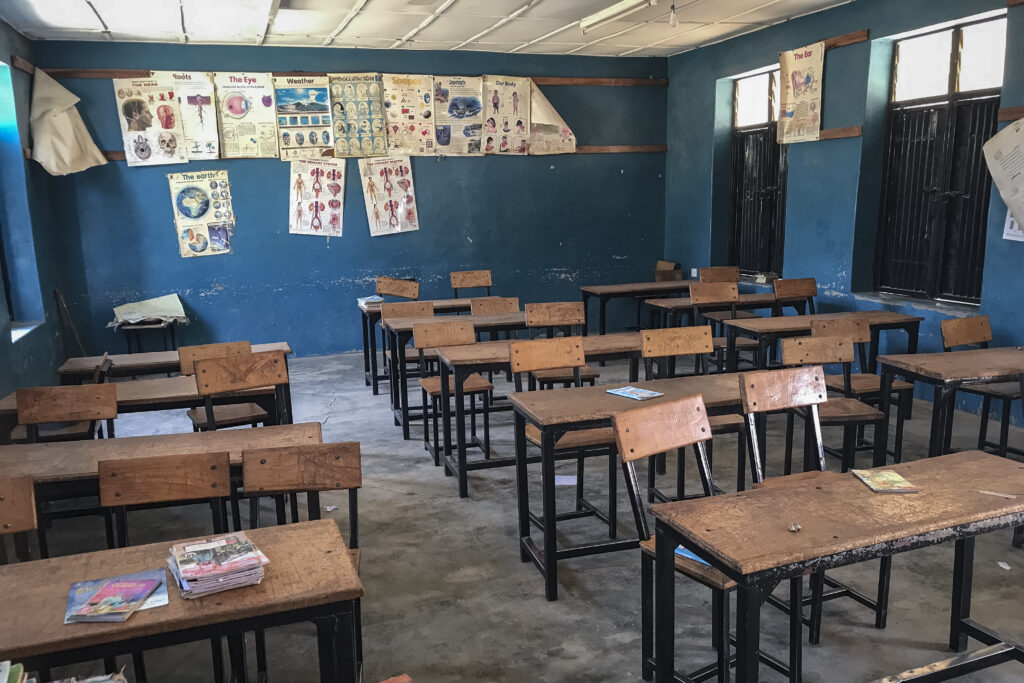The recent wave of kidnappings plaguing Nigeria is just the latest bout of security crises to hit Africa’s most populous country, which the government says it is fully committed to address.In just a week, assailants kidnapped 25 schoolgirls, 38 worshippers, 315 school children and teachers, 13 young women and girls walking near a farm, and another 10 women and children — across various parts of the country.Nigeria has suffered a string of abductions of schoolchildren since Islamist group Boko Haram kidnapped 276 girls in Chibok in the restive northeast in 2014, sparking an international outcry.But the latest spate of successive kidnapping highlight President Bola Tinubu’s administration’s struggle with a long-running security crisis marked by jihadist attacks and violence by “bandit” gangs that raid villages, kill people and kidnap for ransom.AFP looks at what the government in the regional powerhouse is doing.- What is government doing to improve security? -Tinubu on Tuesday said: “In response to the recent kidnappings and acts of terrorism, I have ordered a full security cordon over” thick forests where the gangs have bases. He added the air force will “maintain continuous surveillance over the most remote areas” and work with ground units to “identify, isolate, disrupt, and neutralise all hostile elements” across areas where the recent kidnappings have occurred.He has also ordered a redeployment of police VIP bodyguards to core policing duties, and approved the recruitment of 30,000 additional officers.According to the European Union Agency for Asylum (EUAA), more than 100,000 of the estimated 371,000-strong force were previously assigned to protect politicians and VIPs.But police redeployment ordered at the weekend risks being “sabotaged” by the VIPs and the officers who get paid for their service. “The VIPs will feel vulnerable if they don’t have police protection,” said Kabir Adamu of Beacon Security and Intelligence consulting firm.- How are hostages secured? -Except when the air force uses the combative kinetic security approach, details of the circumstances under which hostages are released are rare. Critics accuse the government of negotiating with captors. Ransom payments for hostages is a sensitive topic. Ransom has been outlawed since 2022 and punishable by a minimum of 15 years in jail. Authorities never admit to paying ransom, but it is “very likely” that money is paid to free the victims, said Confidence MacHarry of SBM Intelligence.After 24 schoolgirls were released from Kebbi, state governor Nasir Idris, said the release was secured through “non-kinetic” efforts — such as diplomacy.Shortly after the release on Tuesday evening, the “bandits” posted a video on social media claiming that government did not release the schoolgirls but was forced to negotiate with the kidnappers.In July, bandits in northwestern Zamfara state slaughtered 33 people they had kidnapped month earlier despite receiving a $33,700 ransom, residents told AFP then.- Why is kidnapping so rampant in Nigeria? -Kidnapping has become an “epidemic for more than a decade, driven by numerous criminal and extremist groups,” said International Crisis Group’s Nnamdi Obasi.A recent report by SBM Intelligence showed that “between July 2024 and June 2025, Nigeria’s kidnap-for-ransom crisis consolidated into a structured, profit-seeking industry.” At least 4,722 people were kidnapped in 997 incidents, and at least 762 were killed with kidnappers demanding some 48 billion naira and but managed to get 2.57 billion naira (around $1.66 million).According to MacHarry, kidnappings in the northwest and central regions are mostly carried out “Fulanis who had lost their cattle… lost their livelihood and decided to go into crime with their abundance of guns in the country”.- Any solution to end the crisis? -Happening just weeks after US President Donald Trump threatened Nigeria with military action over the alleged killing of Christians in large numbers, the latest attacks leave Abuja in an embarrassingly awkward situation.According to the Kebbi governor, there was intelligence about a looming attack before the two dozen schoolgirls were taken. Soldiers were deployed to guard the school but vacated an hour before the attack, he told local media while, calling for an investigation into the withdrawal. “There was sufficient intel,” said MacHarry, pointing to military failures which “regularly happen” but “nobody gets punished”.Co-founder of the #BringBackOurGirls movement which campaigned for the release of the Chibok girls, Aisha Yesufu, pointed to a lack of “political will to fight” the gangs and jihadists.”And as long as we don’t fight the terrorism, we’re going to continue to have things like this,” she said.
